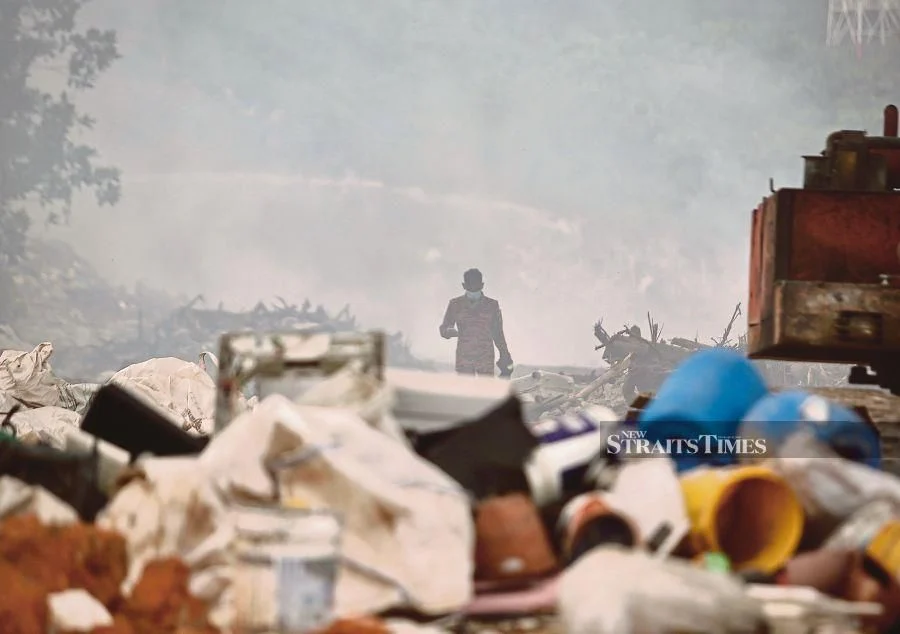
KUALA LUMPUR: There will be no more land left in Malaysia by 2050 if nothing is done to reduce waste, says an expert.
Malaysian Green Technology and Climate Change Corporation chief executive officer Shamsul Bahar Mohd Nor said if left unchecked, the problem would lead to more spaces being converted into landfills, leaving limited space for the people.
He said in the past decade, the amount of garbage thrown away had been steadily rising in tandem with the population growth, and most of the waste went into landfills.
“Improper solid waste management also contributes to climate change as decomposing waste produces greenhouse gases such as methane (that contributes to global warming).
“Climate change is real and its effects will eventually catch up with us, if not now then with the next generation,” said Shamsul during the second waste sector roundtable series organised by Climate Governance Malaysia on Tuesday.
Malaysia disposes of more than 30,000 tonnes of municipal solid waste (MSW) daily, with 1.17kg of waste per capita.
This is compared with the daily average of 17,000 tonnes of MSW handled by local governments and waste management concessionaires in the early 2000s.
According to the National Solid Waste Department’s website, there are 165 landfills, eight sanitary landfills and three inert landfills (for materials such as sand and concrete) in the country.
The Solid Waste Corporation (SWCorp) reported that Malaysia’s recycling rate in 2020 was at 30.67 per cent, lower than other Asian countries such as Singapore at 59 per cent, South Korea at 49 per cent and Taiwan at 60 per cent.
Shamsul stressed the 7R — recycle, reuse, reduce, repurpose, refuse, repair and rethink — in addressing waste management issues.
He said there must be a mentality shift among consumers, adding that more people had opted to use biodegradable plastic bags and drinking straws.
“We need to change the mindset. Teach the proper way to adopt the 7R, but at the same time, we need to walk the talk.”
Malaysia Green Building Council member B.K. Sinha said separation at source was the basic principle that everyone could adopt to reduce the amount of waste in landfills that would significantly reduce pressure on the environment.
He said food waste contributed the largest composition of MSW, followed by plastic, paper, mixed organic, wood and others.
“Instead of complaining (about the problem), we should focus on what we can do to reduce waste as individuals, regardless of how others behave. It only needs a simple system at home of segregating food waste from dry waste.
“Food waste could be converted into energy through the use of biogas plants. Residents’ associations could also look at sustainable waste management in the neighbourhoods.”
He said a linear economy, which comprised principles of take-make-and-dispose was not sustainable, compared with a circular economy which aimed at reducing the environmental footprint, minimising waste, reducing resource dependency and generating increased income.
A circular economy involved extending the lifespan of products, recycling waste and reusing resources, using fewer resources that would eventually help reduce waste sent to landfills, he said.
“Don’t be disheartened when we see that others are not doing their part in separating and reducing waste.
“Instead, we should continue with our efforts so that we can progress towards achieving a zero waste society.”
Source : NST

